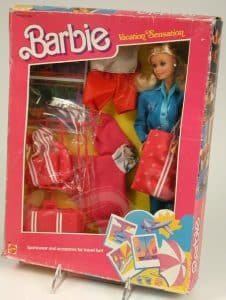 Vacationing has a long tradition for working folks the world over. Most of us look forward each year to taking any break(s) we may have earned from the routines of everyday living. We all anticipate and welcome regular periods of relaxation during which we say to ourselves, “I’m on vacation now, and I will do only things that make me happy. Besides, I need a break.”
Vacationing has a long tradition for working folks the world over. Most of us look forward each year to taking any break(s) we may have earned from the routines of everyday living. We all anticipate and welcome regular periods of relaxation during which we say to ourselves, “I’m on vacation now, and I will do only things that make me happy. Besides, I need a break.”
As I started looking into this topic, I learned that a formal concept called the Work-Life Balance originated in late 19th-century England during the Industrial Revolution. Essentially derived from anthropological theory, it suggests that happiness results when little separation exists between one’s work and one’s play. Put another way, we only achieve happiness (and good health) when our work and personal life balance properly.
Elbert Hubbard, founder of East Aurora, New York’s Roycroft community, followed this principle. His Roycrofters—a devoted group of talented printers, furniture makers, metalsmiths, leathersmiths, and bookbinders—looked to him and other Arts and Crafts period leaders for their inspiration. A John Ruskin quotation formed the Roycroft creed: “A belief in working with the head, hand and heart and mixing enough play with the work so that every task is pleasurable and makes for health and happiness.” Hubbard’s leadership attracted almost 500 craftspeople to his cause by 1910. And many more learned of him through his essay A Message to Garcia.
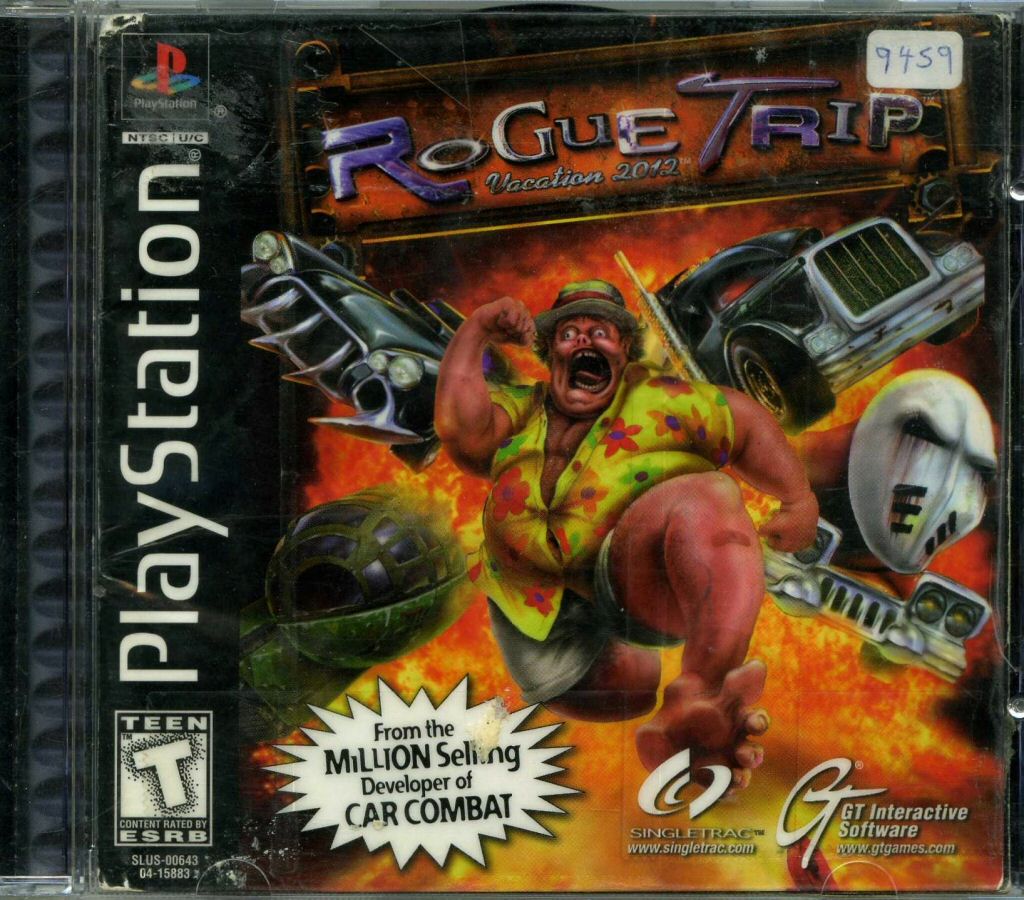 In recent years, a steadily increasing imbalance has begun to manifest itself in higher stress levels worldwide. One study (for the Center for Work-Life Policy) stated that a full 81 percent of respondents believe that their work is adversely affecting their health. The reasons for this are complex and varied, but the point is that we now seem to require vacations more than ever before, making vacations no longer a luxury but a necessity. Vacations provide the time we all need to periodically wind down and rest up before going on. In order to stay healthy and happy, each of us needs this special vacation time to do things we thoroughly enjoy (and that are stress-reducing).
In recent years, a steadily increasing imbalance has begun to manifest itself in higher stress levels worldwide. One study (for the Center for Work-Life Policy) stated that a full 81 percent of respondents believe that their work is adversely affecting their health. The reasons for this are complex and varied, but the point is that we now seem to require vacations more than ever before, making vacations no longer a luxury but a necessity. Vacations provide the time we all need to periodically wind down and rest up before going on. In order to stay healthy and happy, each of us needs this special vacation time to do things we thoroughly enjoy (and that are stress-reducing).
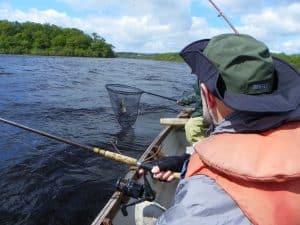 There are as many leisure activities, I think, as there are people engaged in them. Leisure obviously depends upon one’s personal definition of the term. Some love piling into the family truckster and heading off to explore new territories and enjoy new attractions. Others prefer to relax by the lake. For example, my hardworking brother-in-law Bob loves to take frequent fishing vacations. He regularly joins several buddies in the northern reaches of Canada to fish for indigenous species—smallmouth bass, northern pike, trout, and others.
There are as many leisure activities, I think, as there are people engaged in them. Leisure obviously depends upon one’s personal definition of the term. Some love piling into the family truckster and heading off to explore new territories and enjoy new attractions. Others prefer to relax by the lake. For example, my hardworking brother-in-law Bob loves to take frequent fishing vacations. He regularly joins several buddies in the northern reaches of Canada to fish for indigenous species—smallmouth bass, northern pike, trout, and others.
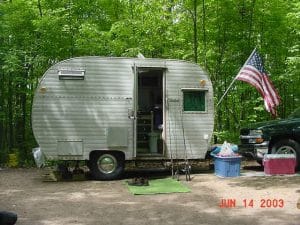 Chris Bensch’s latest blog mentioned going off on family camping vacations. My family took these types of vacations too when I was growing up. Our cross-country trip to Yellowstone Park in 1963 was particularly “memorable”—four kids, two parents, and a dog crammed into a station wagon, and a tiny Fan trailer. Remind you of a Chevy Chase film, perhaps?
Chris Bensch’s latest blog mentioned going off on family camping vacations. My family took these types of vacations too when I was growing up. Our cross-country trip to Yellowstone Park in 1963 was particularly “memorable”—four kids, two parents, and a dog crammed into a station wagon, and a tiny Fan trailer. Remind you of a Chevy Chase film, perhaps?
![Mom and Kathy enjoy a cool one at The Stag Head Pub in Dublin. [No, Mom didn’t drink it. She hates beer.] Photo courtesy of Rick Sherin.](https://www.museumofplay.org/app/uploads/2021/08/24-No-she-didnt-drink-it.-small-1.jpg) Often, for economic reasons, we fold several vacation goals into one activity or excursion. Recently my sister Kathy, her husband, Bob, and I escorted our mother to Ireland, so she could experience once more the green and glorious splendor that is the Ould Sod. Along the way, we also visited distant cousins, toured the famous Belleek Pottery, fished in Lough Melvin for salmon and trout, and learned to pour and enjoy a Guinness the right way. The time we spent with family was extraordinarily wonderful. Not only did we get to enjoy the native hospitality and tongue, but we also afforded ourselves the opportunity to relax and to laugh—all while reconnecting with people of the same blood. No one can put a price on that.
Often, for economic reasons, we fold several vacation goals into one activity or excursion. Recently my sister Kathy, her husband, Bob, and I escorted our mother to Ireland, so she could experience once more the green and glorious splendor that is the Ould Sod. Along the way, we also visited distant cousins, toured the famous Belleek Pottery, fished in Lough Melvin for salmon and trout, and learned to pour and enjoy a Guinness the right way. The time we spent with family was extraordinarily wonderful. Not only did we get to enjoy the native hospitality and tongue, but we also afforded ourselves the opportunity to relax and to laugh—all while reconnecting with people of the same blood. No one can put a price on that.
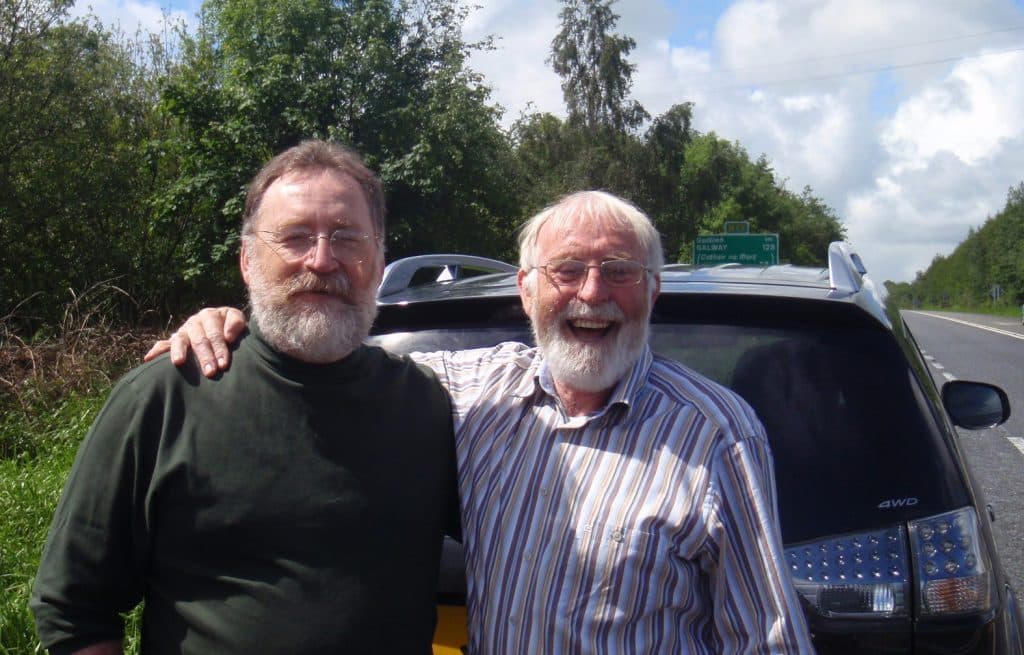
Surely, many of you have similar stories of vacation play and the good things it did for both your body and your spirit. Why not share them with us all at America at Play: Play Stories? You’ll be healthier for it!
 Hours 10 a.m.–5 p.m. | Fri. & Sat. till 8 p.m.
Hours 10 a.m.–5 p.m. | Fri. & Sat. till 8 p.m.